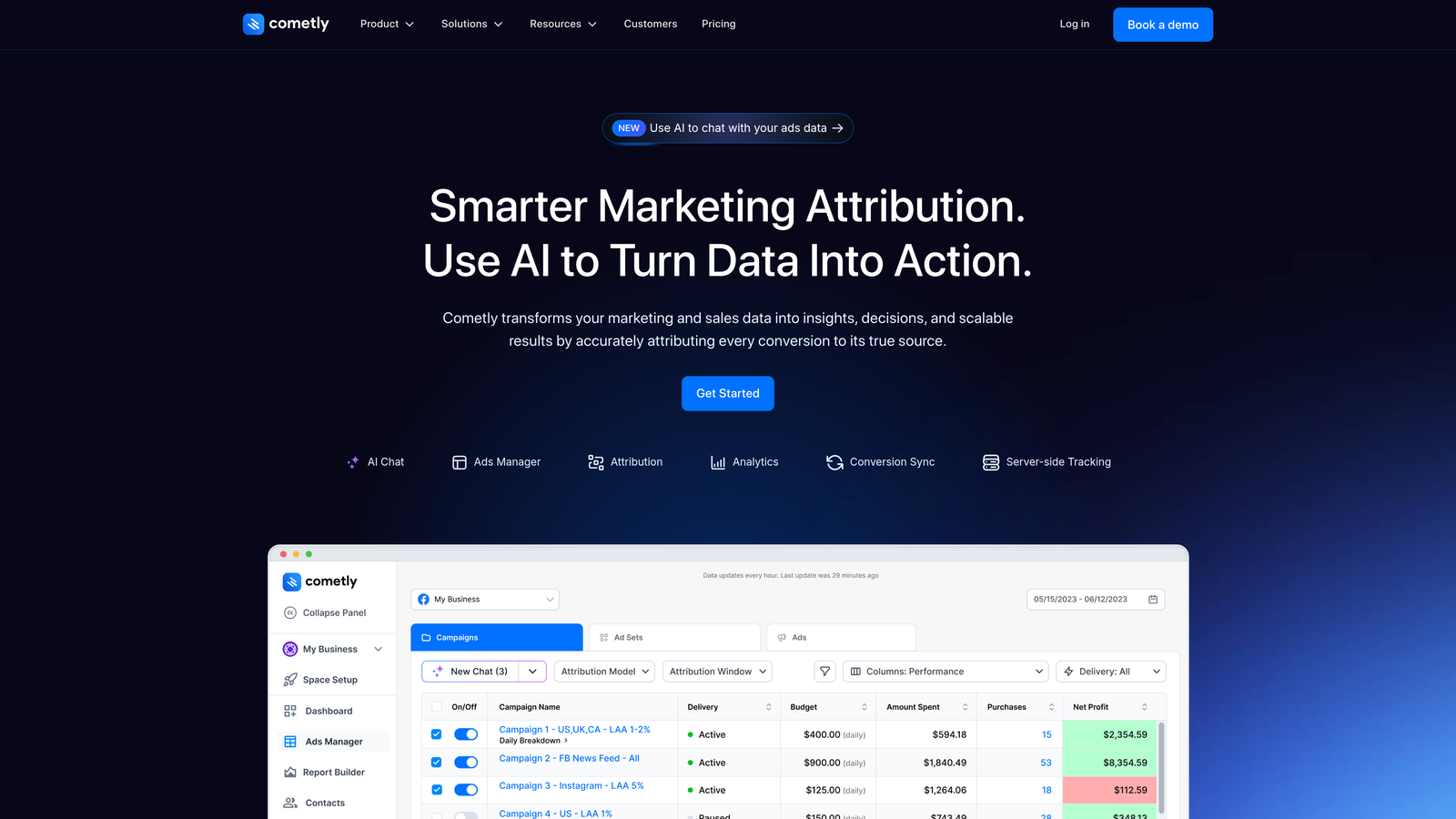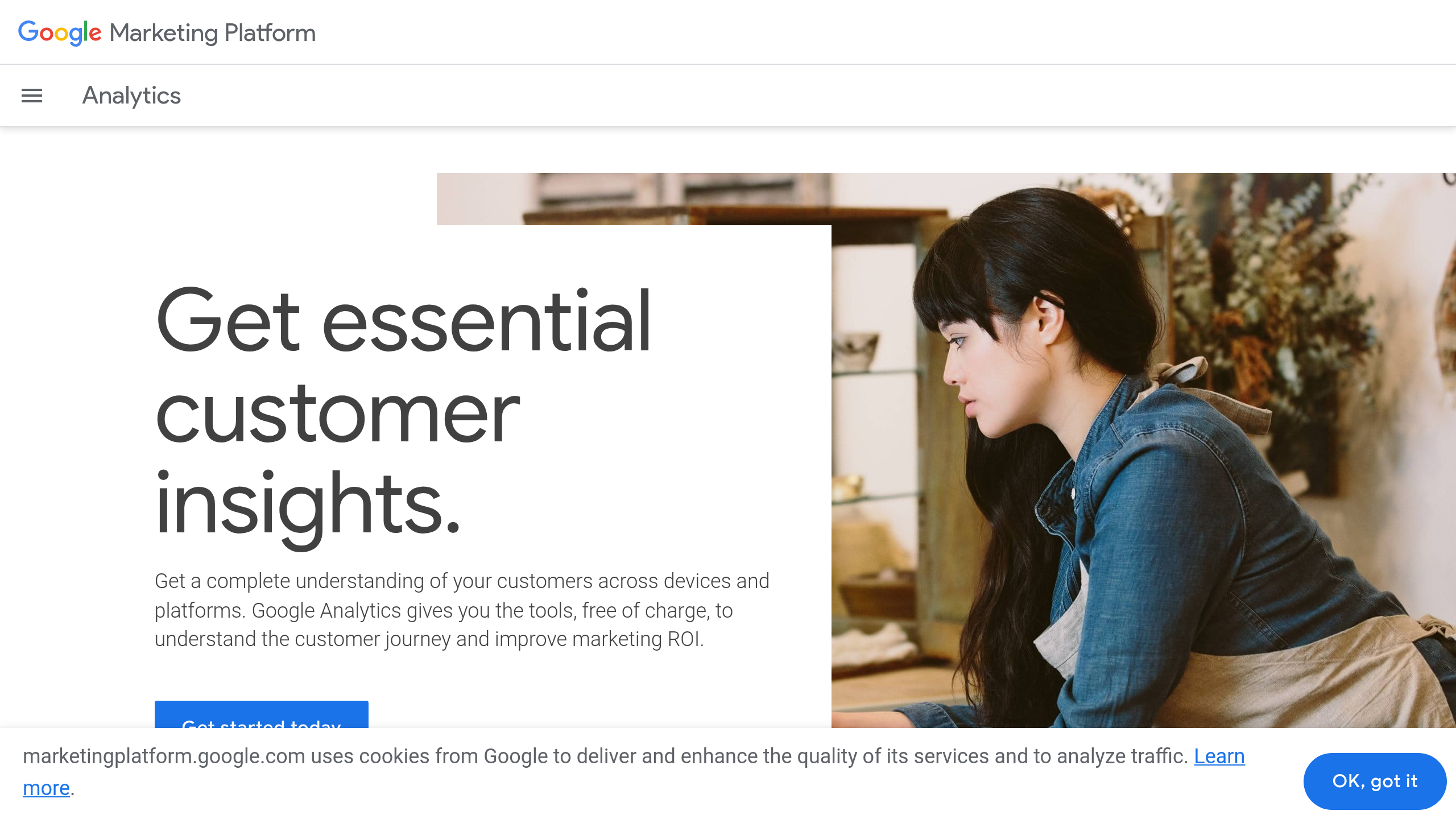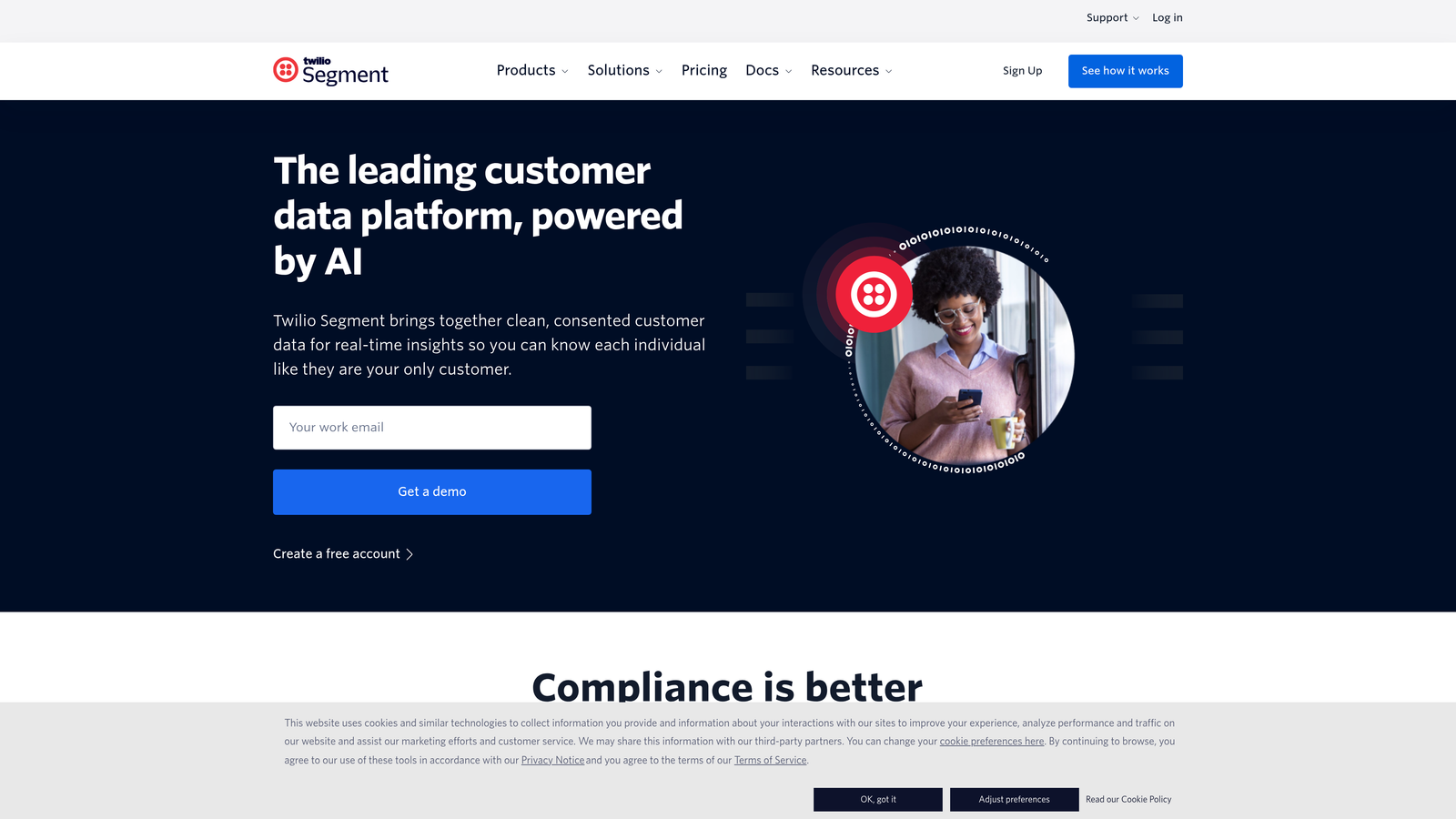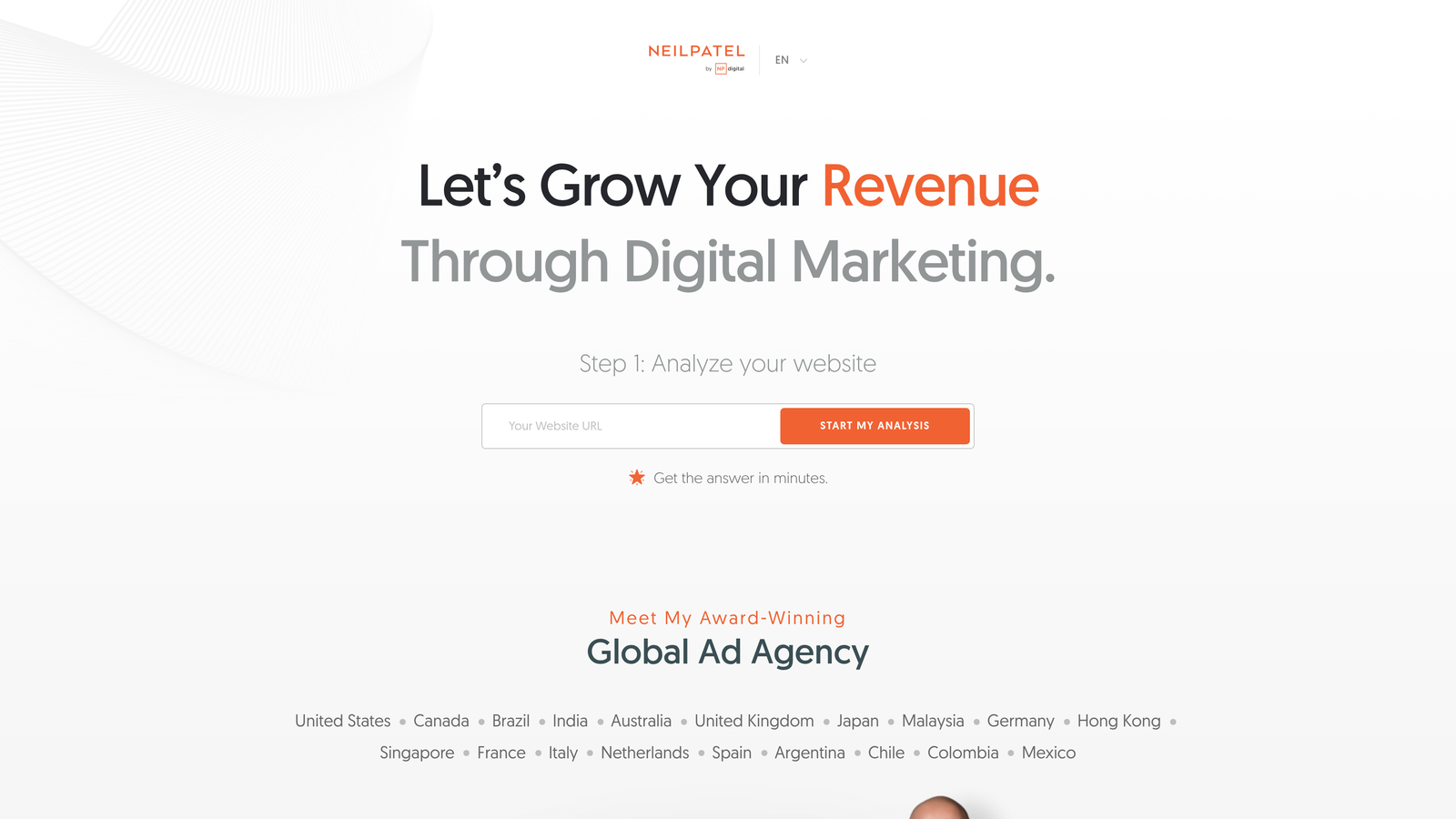Imagine you're running a marketing campaign across multiple channels. You’ve invested time and money into ads on social media, Google, and email. Yet, when it comes to attributing sales to these efforts, the picture is hazy. You might wonder, "Which channel is actually driving revenue?" This is a common scenario in today's complex marketing landscape, where customers interact with numerous touchpoints before making a purchase. Accurate marketing campaign attribution can be the difference between effective budget allocation and wasted resources.
Marketing attribution is not just about knowing which ads get clicks; it's about understanding the entire customer journey. By utilizing a marketing campaign attribution platform, you can gain insights that inform your decisions, optimize your marketing spend, and ultimately enhance your ROI.
Let's dive into the top 7 marketing campaign attribution platforms that can help you accurately measure your marketing efforts and drive better results.
Best for: Comprehensive tracking of every marketing touchpoint across channels.
Cometly is a marketing attribution platform that shows exactly which ads and channels drive leads and revenue.

Cometly connects your ad platforms, CRM, and website to track the entire customer journey in real-time. This level of integration allows marketers to analyze ad performance, compare attribution models, and make data-driven decisions to scale campaigns effectively.
Overview & Background: Founded with the goal of simplifying marketing analytics, Cometly has quickly become a go-to solution for businesses looking to optimize their advertising efforts. By capturing every touchpoint—from ad clicks to CRM events—Cometly provides a complete view of customer interactions.
Key Features:
1. Multi-channel Tracking: Cometly tracks all marketing channels, allowing you to see how different touchpoints interact with each other.
2. Real-Time Data: The platform provides live updates on campaign performance, enabling swift adjustments to marketing strategies.
3. AI Recommendations: Its AI analyzes data to identify high-performing ads and campaigns, giving you insights on where to invest more resources.
4. Integration Capabilities: Cometly seamlessly integrates with popular ad platforms like Google Ads and Facebook, as well as CRM systems, ensuring a smooth flow of data.
5. Customizable Dashboards: Users can build tailored dashboards that focus on the metrics that matter most to their business.
How It Works: After integrating your marketing tools, Cometly aggregates data from various sources to provide insights into your campaigns. The AI component analyzes this data and offers actionable recommendations to improve your marketing efforts.
Pricing & Plans: Cometly offers various pricing tiers based on user needs, making it accessible for both small businesses and large enterprises. Specific pricing details can be obtained by contacting their sales team.
Why It's Great for Marketers: Cometly's ability to connect every touchpoint to conversions allows marketers to understand what’s really driving revenue, helping them make informed decisions.
Best for: Businesses looking for a robust, free analytics solution.
Google Analytics 4 is the latest version of Google's analytics platform, designed to provide insights into customer behavior across websites and apps.

This tool offers advanced tracking capabilities that allow businesses to measure the effectiveness of their marketing campaigns more accurately than ever.
Overview & Background: As the successor to Universal Analytics, Google Analytics 4 focuses on user-centric data modeling, which is essential for today's privacy-driven world. It incorporates machine learning to provide predictive insights that help businesses plan their marketing strategies.
Key Features:
1. Event-Based Tracking: GA4 uses an event-based model, tracking every interaction as an event, which provides a comprehensive view of user engagement.
2. Cross-Platform Tracking: This platform allows tracking across both web and app, giving a unified view of customer interactions.
3. Predictive Insights: Using machine learning, GA4 can predict future user behavior and potential revenue, enabling proactive marketing strategies.
4. Privacy-Centric: With changing privacy regulations, GA4 is designed to function effectively within these constraints, ensuring compliance.
5. Customizable Reports: Users can create tailored reports to focus on specific metrics that align with their business goals.
How It Works: After setting up GA4, businesses can start tracking user interactions across their digital properties. The platform provides insights into user behavior, helping marketers identify which channels are most effective.
Pricing & Plans: Google Analytics 4 is free, with a premium version available for larger enterprises that require more advanced features.
Why It's Great for Businesses: GA4’s robust features make it an excellent choice for businesses looking to leverage data for improved marketing strategies without a significant financial investment.
Best for: All-in-one marketing and sales platform with built-in attribution capabilities.
HubSpot is well-known for its comprehensive marketing, sales, and service tools, including powerful marketing campaign attribution features.

With HubSpot, businesses can track the performance of their marketing campaigns and understand which channels drive the most leads and conversions.
Overview & Background: HubSpot has evolved from a blogging and lead generation tool to a full-fledged marketing automation platform, making it a top choice for businesses of all sizes.
Key Features:
1. Attribution Reporting: HubSpot provides detailed reporting on the performance of your marketing campaigns, showing which channels contribute to conversions.
2. Integrated CRM: The platform includes a CRM that allows for seamless tracking of leads and customer interactions, enhancing data accuracy.
3. Email Marketing Automation: HubSpot’s email marketing tools let you create personalized campaigns based on user behavior.
4. Landing Page Builder: Users can create optimized landing pages that are integrated with their marketing efforts for better tracking.
5. Lead Scoring: HubSpot allows businesses to score leads based on their interactions, helping prioritize sales efforts.
How It Works: After integrating HubSpot with your other marketing tools, you can begin tracking campaign performance. The platform’s intuitive dashboards provide insights into which efforts are yielding results.
Pricing & Plans: HubSpot offers a free tier with basic features, with premium plans that unlock more advanced capabilities starting at a competitive price point.
Why It's Great for Marketers: HubSpot’s all-in-one solution makes it easier for teams to collaborate and understand the effectiveness of their campaigns.
Best for: Businesses focused on retargeting and display advertising.
AdRoll is a marketing platform that primarily focuses on retargeting, allowing businesses to reconnect with visitors who didn’t convert initially.

By utilizing AdRoll’s attribution capabilities, marketers can track the effectiveness of retargeting campaigns across multiple channels.
Overview & Background: Originally started as a retargeting platform, AdRoll has expanded its capabilities to include a full suite of marketing tools, including email marketing and analytics.
Key Features:
1. Cross-Channel Attribution: AdRoll tracks user engagement across social media, web, and email, providing insights into how retargeting efforts perform.
2. Dynamic Ads: The platform allows for the creation of personalized ads based on user behavior, enhancing engagement.
3. Easy Integration: AdRoll integrates with many eCommerce platforms, making it accessible for online retailers.
4. Campaign Optimization: Users can analyze performance and optimize campaigns in real-time for better ROI.
5. Predictive Analytics: AdRoll uses machine learning algorithms to predict user behavior and optimize ad placements.
How It Works: After setting up AdRoll, businesses can launch retargeting campaigns that track performance across various channels, providing insights into customer behavior.
Pricing & Plans: AdRoll offers flexible pricing based on advertising spend, making it suitable for businesses of all sizes.
Why It's Great for Businesses: AdRoll’s focus on retargeting makes it a powerful tool for businesses looking to maximize their marketing efforts and recover lost conversions.
Best for: Businesses looking to centralize customer data for better attribution.
Segment is a customer data platform that helps businesses collect, clean, and connect their customer data across various channels.

By centralizing data, Segment allows for more accurate attribution of marketing efforts.
Overview & Background: Segment is designed to help businesses manage customer data efficiently, making it easier to implement marketing strategies based on reliable insights.
Key Features:
1. Data Collection: Segment collects data from multiple sources, ensuring that businesses have a complete view of customer interactions.
2. Integration with Tools: The platform integrates with many marketing tools, allowing seamless data flow and enhanced attribution.
3. Real-Time Analytics: Users can access real-time data to monitor the effectiveness of their marketing campaigns.
4. User Profiles: Segment builds user profiles based on interactions, providing insights into customer behavior and preferences.
5. Privacy Compliance: The platform includes features that help businesses comply with data privacy regulations.
How It Works: Once integrated with your marketing tools, Segment collects data and creates user profiles that can be used for targeted marketing efforts.
Pricing & Plans: Segment offers a free tier for startups, with paid plans that include additional features suitable for larger businesses.
Why It's Great for Marketers: Segment’s ability to centralize customer data makes it easier for marketers to track and attribute performance across channels.
Best for: Product-led businesses that want in-depth user behavior analysis.
Mixpanel is an advanced analytics platform that focuses on user engagement, allowing businesses to track how users interact with their products.

This platform's attribution features help businesses understand which marketing efforts drive product usage and conversions.
Overview & Background: Mixpanel was designed for product teams looking to understand user behavior deeply, providing insights that help optimize user experiences.
Key Features:
1. Event Tracking: Mixpanel allows businesses to track specific user actions, providing insights into how marketing efforts influence behavior.
2. Funnel Analysis: The platform offers funnel analysis to identify where users drop off in their journey, enabling targeted improvements.
3. Cohort Analysis: Users can analyze specific user groups to understand how different segments respond to marketing efforts.
4. A/B Testing: Mixpanel includes A/B testing features to help businesses optimize their marketing strategies based on user behavior.
5. Retention Tracking: The platform tracks user retention, providing insights into how well marketing efforts keep users engaged over time.
How It Works: After setting up Mixpanel, businesses can track user behavior and analyze how different marketing channels contribute to engagement and conversions.
Pricing & Plans: Mixpanel offers a free plan with limited features, with pricing tiers that scale based on usage and additional capabilities.
Why It's Great for Businesses: Mixpanel’s focus on user behavior makes it an invaluable tool for product-led organizations looking to optimize their marketing efforts.
Best for: E-commerce businesses looking to improve customer retention and conversions.
Kissmetrics is an analytics platform designed to help businesses understand their customers and improve marketing effectiveness.

With a strong focus on customer behavior, Kissmetrics provides insights that can significantly enhance marketing attribution efforts.
Overview & Background: Kissmetrics has been a leader in customer analytics since its inception, providing businesses with tools to measure the impact of their marketing campaigns.
Key Features:
1. Customer Tracking: Kissmetrics tracks individual customer journeys, providing insights into how different marketing efforts influence buying behavior.
2. Conversion Metrics: The platform offers detailed conversion tracking, helping businesses understand which channels drive sales.
3. Retention Analysis: Users can analyze retention metrics to identify areas for improvement in customer engagement.
4. Segmentation: Kissmetrics allows for deep segmentation of customer data, enabling targeted marketing strategies.
5. Integration with E-commerce Platforms: The platform integrates with popular e-commerce solutions, making it ideal for online retailers.
How It Works: Once implemented, Kissmetrics tracks customer interactions across various touchpoints, providing businesses with actionable insights into their marketing performance.
Pricing & Plans: Kissmetrics offers a custom pricing structure based on the features and usage levels required by each business.
Why It's Great for E-Commerce: Kissmetrics’ focus on customer-centric analytics makes it a perfect choice for businesses looking to improve their marketing effectiveness and customer retention.
As the marketing landscape continues to evolve, the need for accurate attribution becomes increasingly crucial. Each of the platforms listed above offers unique features that can help you effectively measure your marketing efforts and enhance your strategies.
Whether you choose a comprehensive solution like Cometly that captures every touchpoint or leverage analytics powerhouses like Google Analytics 4 and HubSpot, the right attribution platform can significantly impact your marketing success.
Ready to take your marketing attribution to the next level? Get your free demo of Cometly today and see how you can optimize your marketing efforts with real-time insights and attribution analytics.
Learn how Cometly can help you pinpoint channels driving revenue.
.svg)
Network with the top performance marketers in the industry